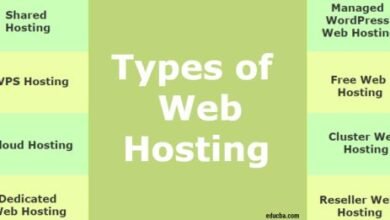Understanding Your Needs for Hosting Plan

Choosing the right hosting plan for all your websites means understanding what each one needs. Think about the kind of websites you have, like blogs or online stores, and how many people visit them now and in the future. This helps figure out stuff like how much space and power your site needs.
Read more: Most Effective Digital Marketing Techniques
Choosing the Right Hosting Type
There are different types of hosting, like shared, VPS (more control and dedicated resources), and dedicated (total control and lots of resources). Don’t forget about extra stuff like email and security features, plus good support. And always make sure the plan can grow with your websites. It’s not just about finding the cheapest option, but the one that fits your needs best.
Shared Hosting
Shared hosting is a web hosting service where multiple websites reside on a single physical server. Imagine it like an apartment building where many tenants share common areas like hallways and laundry facilities. In this analogy, the server is the building, the websites are the individual apartments, and the resources like storage space and processing power are the shared amenities.
VPS (Virtual Private Server)
A VPS, or Virtual Private Server, is like renting your own apartment in a big building. Instead of sharing resources with other websites, like in shared hosting, you get your own dedicated space. This gives you more control and better performance for your website. It’s a bit more expensive, but worth it for websites with higher traffic or specific requirements.
Dedicated Hosting
Dedicated hosting is like owning your own house instead of renting an apartment. With dedicated hosting, you get an entire server just for your website. This means you have complete control over everything, from the hardware to the software setup. It’s the most powerful and secure type of hosting because you don’t have to share resources with anyone else.
Key Considerations When Comparing Plans
When selecting a hosting plan for your websites, it’s essential to assess their individual needs. Consider factors like website size, traffic volume, content complexity, and technical requirements. Smaller sites with low traffic may be fine with shared hosting, while larger or high-traffic sites may require VPS or dedicated hosting.
Storage and bandwidth
Choosing the correct storage and bandwidth for your multiple websites is vital for their performance and user satisfaction. While bandwidth controls the data transferred between your website and visitors, storage refers to the physical space that your website’s files and data occupy.
When estimating your requirements, take into account factors such as website type, content size, and anticipated traffic. Select a plan with sufficient storage to accommodate all your websites’ content, and opt for scalable bandwidth to manage potential traffic spikes.
Customer support
Don’t forget about customer support when picking a hosting plan for your multiple websites. Managing them can get tricky, and you might need help with technical stuff. Look for providers with different support options, like phone, email, live chat, and tickets. Make sure they’re available 24/7, especially if you work across time zones. The support team should know their stuff and be quick to help with any issues. Having reliable customer support means you can keep your websites running smoothly without stress.





